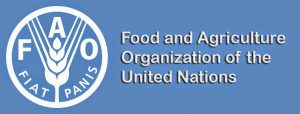FAO urges Small Island Developing States in Africa to Urgently Accelerate the Transition to Climate-smart, Sustainable Agriculture
The Food and Agriculture Organization of the United Nations (FAO) warns that urgent, transformative action is needed in Africa’s six Small Island Developing States (SIDS) due to poverty, vulnerability to temperature and rainfall variations, and the increased risk of prolonged droughts and floods caused by climate change.
A new study by FAO, Transforming Agriculture in Africa’s Small Island Developing States: lessons learnt and options for climate-smart agriculture investment in Cabo Verde, Guinea-Bissau, and Seychelles, warns that these threats, combined with reliance on rainfed agriculture, could lower crop yields and countries’ food consumption, if climate-smart techniques and practices are not adopted.


The study - by FAO’s Regional Office for Africa and the International Crops Research Institute for the Semi-Arid Tropics/Research Program on Climate Change, Agriculture and Food Security - is focused on a country from each income group within the African SIDS: Cabo Verde (medium-income), Guinea-Bissau (lower-income), and Seychelles (higher-income). But the study finds they all face the same basic problems and need support for system-wide capacity development for at-scale, transformational action to protect the nutrition and food supplies of communities.
Investments needed as climate change threatens SIDS
Renewable energy, rainwater-harvesting cisterns, nutrition-sensitive and sustainable local foodstuffs, and climate information systems for farmers, pastoralists and fisherfolk all need to be invested in urgently,” said co-author of the study and FAO Natural Resources Officer Albert Nikiema.
Investments needed as climate change threatens SIDS
Renewable energy, rainwater-harvesting cisterns, nutrition-sensitive and sustainable local foodstuffs, and climate information systems for farmers, pastoralists and fisherfolk all need to be invested in urgently,” said co-author of the study and FAO Natural Resources Officer Albert Nikiema.
The African SIDS already face so many challenges without climate change and they need as many weapons in their armoury as possible for the fight against it. Agriculture must be climate-smart, or family livelihoods and health are going to suffer.”
The study - launched today at a wider FAO event examining climate-smart agriculture – presents statistics and analysis to form a rounded picture of the three selected African SIDS, their economic and location challenges, and the most suitable and adaptable options available. Guinea-Bissau has an especially high undernourishment rate of 20.7 percent of its population, which is one of the very highest for any of the SIDS worldwide. It also has the highest number of people living below the poverty line of the three African SIDS at 69.3 percent of the population, with Cabo Verde having 26.6 percent of people living below the poverty line and Seychelles 13.6 percent. All of them have a narrow resources base, are reliant on ocean resources, have high food imports and high costs for energy, transportation, and fuel. It is a specific and complex picture.
“Not a problem of their making”
“Not a problem of their making”
The natural environment in each of these three Africa SIDS is fragile and is threatened,” said FAO Senior Forestry Officer Nora Berrahmouni. “High tides, flooding and storms are a worry for all of them and many people in Seychelles for example, remember the storm which took over 1 000 of their endemic palms. Flooding has affected agricultural land in all three African SIDS in the past decade - that is frightening for the 58 percent of people in Guinea-Bissau who make their living from agriculture. And it is important to also highlight that all the SIDS worldwide combined, all 58 of them, produce just one percent of carbon dioxide emissions. This is not a problem of their making.”
What FAO and its partners are doing
Beyond raising awareness and offering science-based solutions, FAO has helped develop the Global Action Programme (GAP) on Food Security and Nutrition in SIDS, and is supporting SIDS through policy advice, analysis, and technical assistance.
An FAO project in all six African SIDS supports smallholder farmers to identify opportunities to access high-value, niche markets through Fair Trade or organic labelling. Hundreds of farmers have been trained in climate-smart agriculture and stimulating healthy nutrition.
In the three selected African SIDS projects include:
In Guinea-Bissau’s Bijagos archipelago of 88 islands and islets, FAO is supporting communities to build land reservoirs for rainwater harvesting and to fit solar panels for pumps for the dry season to enable them to grow tomatoes, lettuce, cabbage, and carrots in the otherwise lean dry season.
In Cabo Verde, FAO has partnered with local NGOs to provide cookery schools to raise awareness of nutritious, sustainable, and affordable local foodstuffs which have not traditionally been integrated into meals.
In Seychelles, FAO supports efforts to diversify the dominant tourism industry into agro-tourism and growing products locally and sustainably, rather than importing high amounts of foodstuffs.
Beyond raising awareness and offering science-based solutions, FAO has helped develop the Global Action Programme (GAP) on Food Security and Nutrition in SIDS, and is supporting SIDS through policy advice, analysis, and technical assistance.
An FAO project in all six African SIDS supports smallholder farmers to identify opportunities to access high-value, niche markets through Fair Trade or organic labelling. Hundreds of farmers have been trained in climate-smart agriculture and stimulating healthy nutrition.
In the three selected African SIDS projects include:
In Guinea-Bissau’s Bijagos archipelago of 88 islands and islets, FAO is supporting communities to build land reservoirs for rainwater harvesting and to fit solar panels for pumps for the dry season to enable them to grow tomatoes, lettuce, cabbage, and carrots in the otherwise lean dry season.
In Cabo Verde, FAO has partnered with local NGOs to provide cookery schools to raise awareness of nutritious, sustainable, and affordable local foodstuffs which have not traditionally been integrated into meals.
In Seychelles, FAO supports efforts to diversify the dominant tourism industry into agro-tourism and growing products locally and sustainably, rather than importing high amounts of foodstuffs.
Source: FAO Regional Office for Africa

Comments